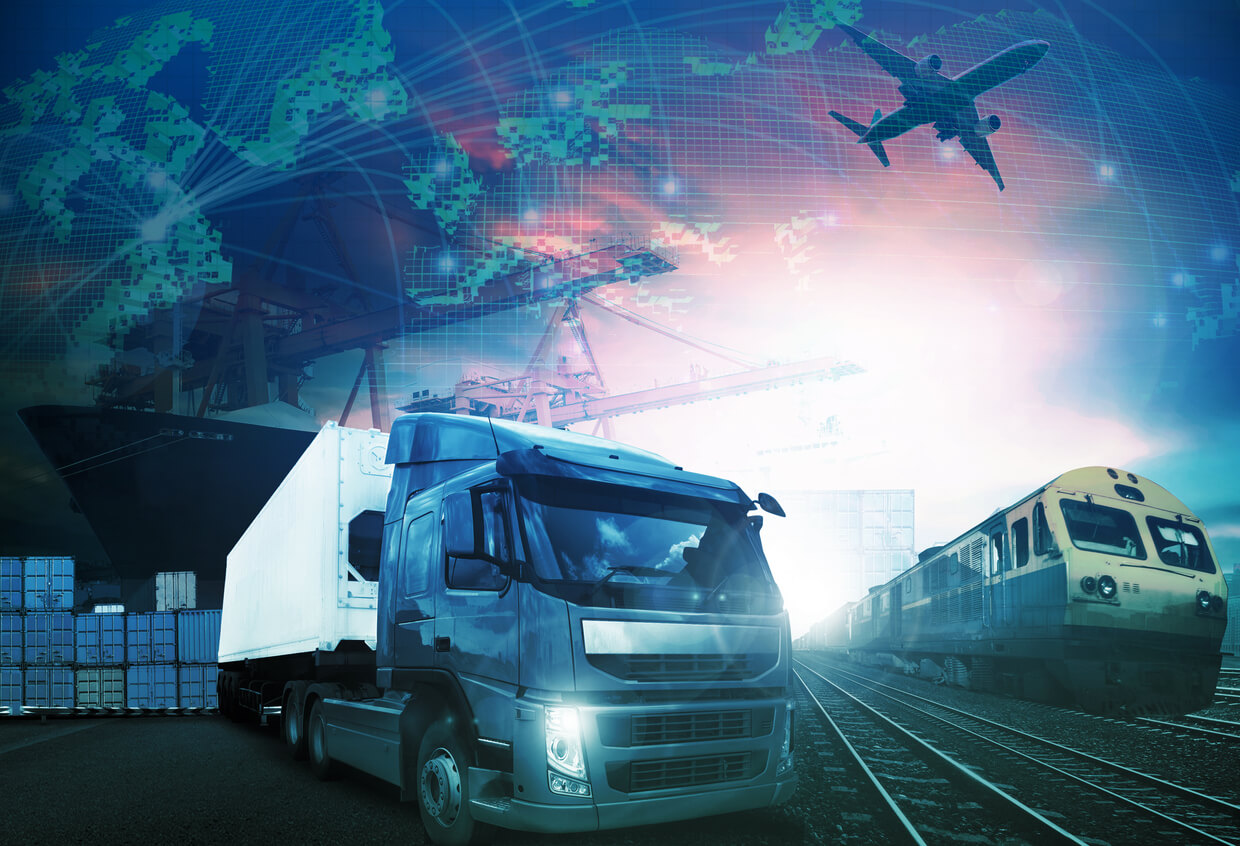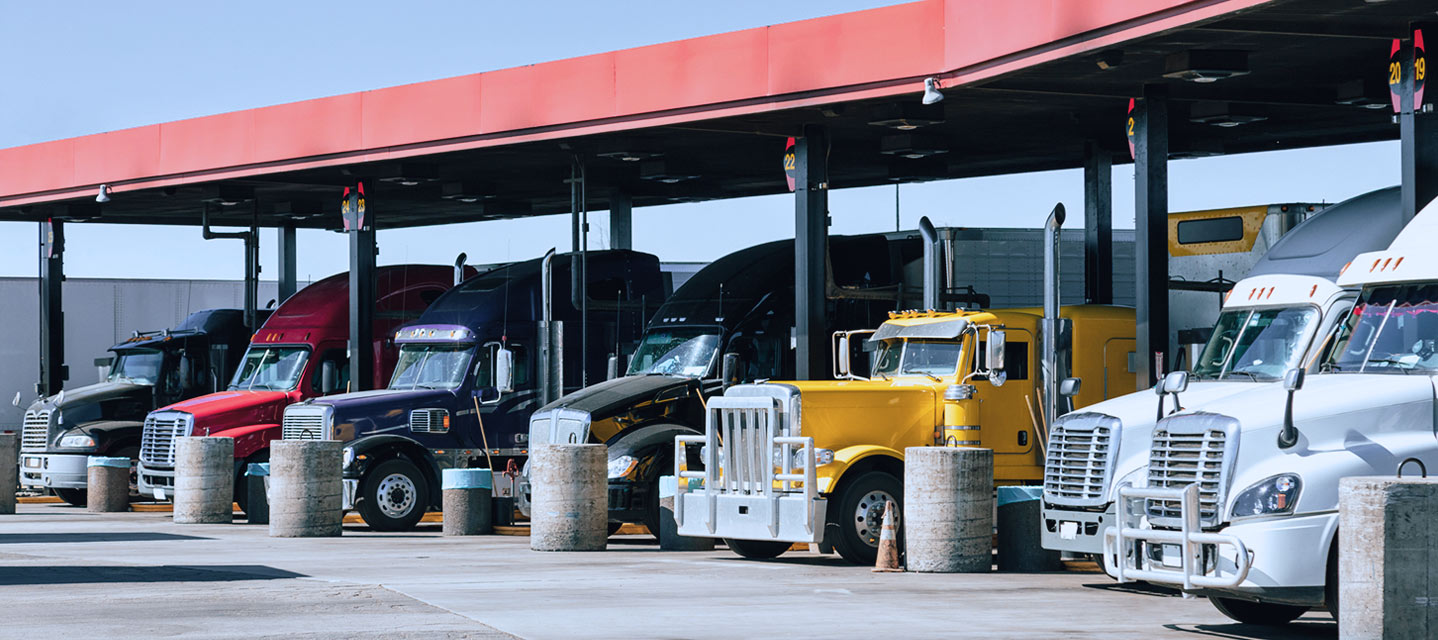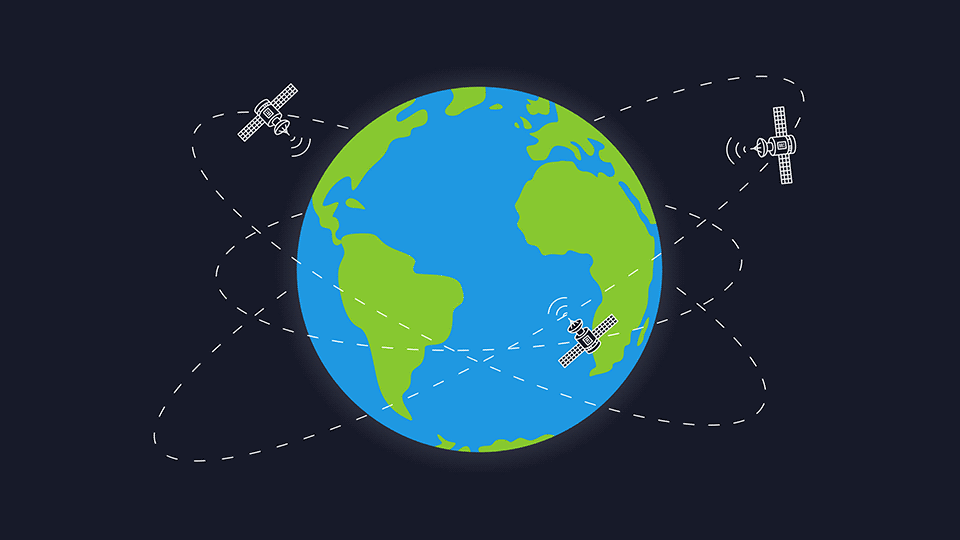Protecting the lifeblood of value and innovation
Digital responsibility is greatly needed across the industry to preserve access to data as a lifeblood of value, innovation and advancement.

By Dirk Schlimm
Executive Vice President
Jan 23, 2017
Updated: Dec 22, 2023

While essential to a modern transportation industry, access to data cannot be taken for granted. As businesses and government stake out their respective strategic positions there is a need for digital responsibility across the industry to preserve access to data as a lifeblood of value, innovation and advancement.
The Rise of Big Data and Machine Learning
There are few industries in the world that will not be touched by big data and machine learning. While this may sound to some as a vague prediction for the future, the transportation industry is undergoing transformative change now as technology is applied to deliver the promise of management by measurement. The opportunities are as rich as they are varied. They range from data-enabled mega fleet operations research projects saving hundreds of millions of dollars, to new — quickly deemed essential — transportation business models, and transportation infrastructure creation.
In the world of transportation, data saves lives, reduces greenhouse gases, and drives innovation; and this is not limited to big business or big government. Small businesses, such as auto repair and local parts shops, and small communities providing a host of services are equally dependent on, and can be equally empowered by, transportation data.
If cash is king, then data has become oxygen: It is the lifeblood of value and innovation in private and public transportation and related industries.

As ubiquitous and essential as transportation data may have become to the very functioning of business and government, we cannot and must not take our current regime of user access to data for granted. There are threats which are real and immediate that cannot be managed by individual stakeholders acting alone. In fact, it appears that there has now emerged a “digital commons,” in the sense of a shared resource, that needs protection through responsible action by all stakeholders; a new form of “corporate digital responsibility” is thus required to ensure that the “big data dividend” remains sustainable.
Five Key Areas of Corporate Digital Responsibility
It has been pointed out that privacy and security of personal data is a key aspect of digital responsibility. This is certainly true, but is only one aspect. Transportation big data includes a host of non-personal data that is used for commercial and technical purposes and that is just as essential and perhaps more in need of responsible practices since its importance has not been widely recognized until recently. Digital responsibility is much bigger than privacy. No doubt the debate will continue, but for the moment, consider the following five key areas of next level corporate digital responsibility:
1. Continuous Advancement of Cybersecurity
Cybersecurity is the challenge of our digital society and the threat to the digital commons. While leading companies set themselves apart by maintaining robust cybersecurity it should not be seen as a source of competitive advantage; i.e. weak cybersecurity at a competitor must not be welcomed. Cybersecurity is a shared responsibility, and a cybersecurity breach at a competitor can make the entire sector look irresponsible. This theory has recently become reality as cyber attacks have been carried out by commandeering large numbers of unsecured IoT devices leading Bruce Schneier to aptly coin the term cyber pollution. Thus, cybersecurity requires highly collaborative and proactive efforts, perhaps bolstered by legislation.
Related: 15 Security Recommendations for Building a Telematics Platform Resilient to Cyber Threats
2. Strong Data Governance
In addition to security, protecting the privacy of personal data remains a key aspect of digital responsibility. This is a challenge in a globalized world where technology easily crosses borders while privacy laws and expectations differ greatly among the world’s leading economies. Privacy is however limited in scope: It is mainly concerned with the rights of drivers (“data subjects”) including consumers, employed drivers, or “independent transportation entrepreneurs.”
But the reach of big data goes much farther and even where big data operates on anonymized, non-personal data, strong governance is still required. Data benchmarking can run afoul of antitrust laws as increased market transparency may facilitate collusion; e.g. detailed price studies. Big data algorithms can be used for discriminatory purposes; e.g. calibration of insurance rates that disadvantage identifiable groups. Offering up non-personal information for legitimate public purposes can raise the ire of the public; e.g. data products for speed limit enforcement.
Part of good governance is to think through the issues ahead of time, ensure methodologies are sound, balance what is possible with what is right and remain nimble enough to correct any mistakes the moment they are identified.
Further, there needs to be a good measure of critical thinking to validate algorithm-generated results. Humans must remain in the loop to challenge the machine’s conclusions and ensure the results remain linked to reality – correlation does not equal causation.
3. Collaborative Approach to Data Use
One of the hot questions in the transportation industry, and likely others as well, is: “Who owns the data?” This seemingly simple question, however, becomes startlingly difficult to answer when examined closely: What kind of data? Which jurisdiction? Is it a matter of law or contract?
In addition, the question of data ownership presumes an exclusionary, zero sum, paradigm whereby one party owns the data and therefore can use it however they wish, whereas other parties do not own it and therefore cannot use it for any purpose at all.
This raises difficult questions in a closely connected ecosystem where all parties in the value chain depend on data to innovate and create value: vehicle manufacturers, dealer networks, fleet managers, fleet customers, parts and subsystem providers, insurers, wireless carriers, and many more. Data is an undeniable source of market power and its concentration under an exclusionary, ownership driven paradigm should be a major concern for any modern economy.
This is why absolute claims of data “ownership,” which can easily antagonize stakeholders, are neither useful nor necessary: One of the key attributes of data, unlike most other commodities, is that multiple parties in the value chain can use it for their own legitimate purposes without depriving others of access to it. It also allows them to create their own intellectual property as they combine various (anonymized/aggregated) data sets with others and apply algorithms and unique processing expertise to innovate and create differentiated products. Creating multiple points of innovation is much more likely to move the industry forward than jealously guarded data enclaves.

4. Interoperable Access to Data
Access to data is, however, not limited to the question of ownership. A vehicle owner or lessee may own the data generated by their vehicle, as appears to be the emerging majority opinion; but a right to access data does not automatically follow ownership. This is especially true with respect to technical data which is a tremendous source of value to all business stakeholders. While most of the world’s vehicles are today equipped with an onboard diagnostic port which provides physical, interoperable data access, European vehicle manufacturers in particular have proposed disabling this functionality, threatening other stakeholders’ data supply in the process. While vehicle manufacturers cite concerns around cybersecurity and investment in R&D, a broad European industry coalition has raised concerns over the undermining of competition, innovation and independent entrepreneurship. They stress the need for an open and secure “digital communication lifeline.”
Data and the knowledge derived from it enables not only the power to innovate but the power to hold others to account.
Big data algorithms can be used to verify stakeholder reporting where such accountability has proven necessary, from fuel consumption claims to emissions testing. If vehicle manufacturers prevail and succeed in setting up a controlled data access system, as they have proposed, it must meet the industry’s requirement of data quality, variety, and accountability and it must enable all legitimate purposes even if they are seen as adverse to the commercial interests of some individual manufacturers.
The broader and guiding insight is that access to data is already one of the critical underpinnings of a functioning market economy, and will only continue to increase in importance. Therefore, while “privacy” has traditionally has been held up as the key “data principle,” in the world of commercial (and public) use of data, competition and a free market is actually the overarching paradigm.[2]
Related: Open Cars — The Future of Transportation?
5. Avoidance of Unintended Consequences
Given many of the above problems the call for regulation has become louder. This ranges from new rules regarding security, to legislation prohibiting discrimination based on big data, and regulatory frameworks for interoperable, in-vehicle telematics platforms. While legislative frameworks certainly have a role to play, even the most well-intentioned regulation has its limitations when dealing with new technology: Much of the technology will be outdated by the time a regulation comes into effect,[3] legislation can create unwieldy complexity and red tape inconsistent with a dynamic technology environment, and regulation can easily have unintended consequences as technology continues to advance. Many of the current legislative efforts are fragmented and even operating at cross purposes, not only at the international level but at the national and sub-national levels as well. The fact is that fast moving technology development outruns slow moving legislative processes. As a result, companies and government who provide and use new technologies have a correspondingly greater responsibility to society.
Where do we go from here?
Digital responsibility is a complex, multi-faceted and society defining issue that escapes any single classification. It is much bigger than the terms “privacy,” “cybersecurity” or “information technology” would suggest. At a societal and policy level it equally touches on free competition, support for innovation, and broad based empowerment. At an individual company level it involves the areas of strategy, marketing, information technology, human resources, legal, intellectual property and other functions. At an industry level, it requires unprecedented collaboration among stakeholders, and even competitors, to avoid the “tragedy of the digital commons.” But while hitting companies, government and society with unprecedented intensity the phenomenon of “access to data” in and of itself is hardly new.
Many of the big data and technology issues that now face every company have been the subject of ongoing innovation and experimentation in the “traditional” information technology sector for much of the last few decades. By and large, broad based interoperability, free access to data, and “co-opetition” have emerged as best practices and guiding principles.[4] Ensuring we debate the issues fully and apply the key lessons learned has, however, become ever more important now that data has become oxygen for all.
References:
- With thanks to Neil Cawse and Damian Kramer for contributing their analysis and thinking.
- See explicit comments in the introduction to a joint White Paper issued by the German and French Competition Authorities titled “Competition Law and Data.”
- This was most notably acknowledged by the United States Supreme Court in the landmark case Quon v. City of Ontario dealing with pager technology. The Supreme court is therefore reluctant to address new technologies with sweeping opinions.
- This was the outcome of the so-called “browser wars” where it was established that net browsers could not be “bundled” with a particular computer operation system.
Subscribe to get industry tips and insights

Executive Vice President
Dirk Schlimm brings more than 30 years of experience as a business leader, a legal executive, executive coach and educator to his role at Geotab.
Table of Contents
- The Rise of Big Data and Machine Learning
- Five Key Areas of Corporate Digital Responsibility
- 1. Continuous Advancement of Cybersecurity
- 2. Strong Data Governance
- 3. Collaborative Approach to Data Use
- 4. Interoperable Access to Data
- 5. Avoidance of Unintended Consequences
- Where do we go from here?
- References:
Subscribe to get industry tips and insights
Related posts

9 strategies to increase fleet fuel efficiency and lower fuel costs
July 8, 2025
4 minute read



Enhancing winter road maintenance with postseason materials usage analyses
June 20, 2025
6 minute read

Multi-stop route planners: A fleet manager's guide + best tools in 2025
June 5, 2025
5 minute read
